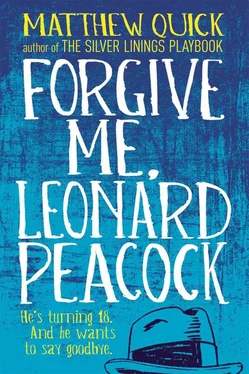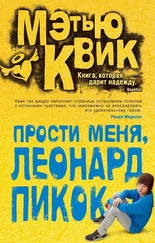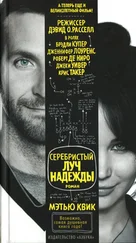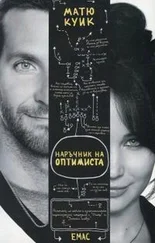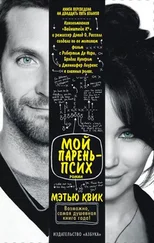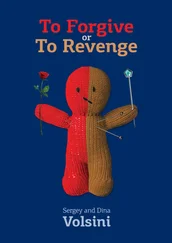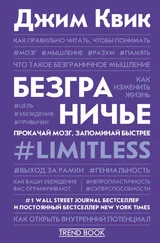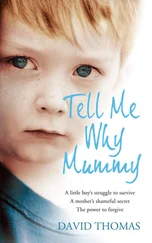I mean we won World War II, right?
And yet all of these adults—the sons and daughters and grandchildren of our World War II heroes—get on metaphorical death trains anyway, even though we beat the Nazi fascists a long time ago and, therefore, every American is free to do anything at all here in this supposedly great free country. Why don’t they use their freedom and liberty to pursue happiness?
When the train comes, the herd jumps on really quickly—like they’ve all been underwater forever and there’s oxygen inside.
No one talks.
It’s always quiet.
No music or anything like that.
No one says, “How was your night?” or, “What are your dreams and aspirations?” Or tells jokes or whistles or does anything at all to lighten the mood and make the morning commute more bearable.
I think about how I strongly dislike all the kids at my school, but at least they’d seem alive if they were on the train. They’d be cracking jokes and laughing and feeling each other up and planning parties and talking about the stupid shit they watched on TV last night and texting each other and singing pop songs and doodling maybe and a million other things.
But these adults in suits just sit there or stand and sometimes grimly read the paper, angrily poke smartphone screens, sip tongue-scorching coffee from disposable cups, and barely even blink.
Observing them gets me so down; it makes me feel like I never want to be an adult. That my decision to use the P-38 is for the best. That I’m escaping some horrible fate and I’m like the Jews who killed their sons and daughters before the Nazi soldiers could take them away to the experimentation torture camps.
Herr Silverman once had us write an essay in first person from the point of view of a Jewish person during the Holocaust. I wrote about a Jewish father who killed his wife and kids and then himself to avoid being taken to the concentration camps, which was a pretty bleak exercise, but an easy essay for me to write actually. The Jewish father I wrote about was a good man who loved his family—he loved them so much he wouldn’t allow them to experience the Nazi horrors. My essay was mostly an apology letter. My anonymous narrator wrote it as a prayer, asking his god’s forgiveness for what he had to do. That essay turned out exceptionally authentic. Herr Silverman even read parts aloud to the class and said I was “empathetic” beyond my years.
I heard other kids in my class whisper all sorts of things about me afterward, saying that I had justified killing children and suicide, but my classmates just didn’t get it, because they are spoiled teenagers living here in America at the beginning of the twenty-first century. They’ve never had to make any real decisions at all. Their lives are easy and unremarkable. They’re not awake.
Herr Silverman is always asking us if we realize how much of our lives are dictated by the fact that we were born in America eighteen years ago, and what would we really have done if we were German kids during World War II when Hitler Youth was all the rage?
Me—I’m honest enough to admit I don’t know.
My idiot classmates all say they would have defied the Nazis, assassinated Hitler with their bare hands even, when they don’t even have the balls or brains to defy our lame-ass flunky teachers and robotic parents.
Sheep.
Example: Herr Silverman does this mind-fuck thing where he says to the class, “You are all more or less wearing the same types of clothes—look around the room and you will see it’s true. Now imagine you’re the only one not wearing a cool symbol. How would that make you feel? The Nike swoop, the three Adidas stripes, the little Polo player on a horse, the Hollister seagull, the symbols of Philadelphia’s professional sports teams, even our high school mascot that you athletes wear to battle other schools—some of you wear our Mustang to class even when there is no sporting event scheduled. These are your symbols, what you wear to prove that your identity matches the identity of others. Much like the Nazis had their swastika. We have a very loose dress code here and yet most of you pretty much dress the same. Why? Perhaps you feel it’s important not to stray too far from the norm. Would you not also wear a government symbol if it became important and normal to do so? If it were marketed the right way? If it was stitched on the most expensive brand at the mall? Worn by movie stars? The president of the United States?”
It’s this type of revolutionary shit Herr Silverman says that always gets the stupid kids in my class angry, red-faced, even ready to fistfight him sometimes, because they don’t realize that our teacher is just trying to get them to think. He’s not really saying that wearing name-brand clothing is evil. Or that buying Polo clothes makes you a Nazi. Or that wearing a Phillies cap is one step away from fascism.
But it makes me laugh every time because I don’t wear any of that name-brand crap, don’t play or follow popular sports at all, and wouldn’t be found dead wearing our shitty school mascot. I’m not a follower. Not a joiner. I’m not even on Facebook.
So whenever Herr Silverman brings up symbols, I can watch the others squirm and defend without feeling like a damn hypocrite.
Maybe I’ve transcended my age, so to speak.
My classmates are all repressed monkeys.
In my funeral suit, on the train, pretending to be a workaday Tom, I always pick out a target—the saddest-looking person I can find—and then I’ll get off at whatever stop the target does and follow.
Ninety-nine percent of the time the target’s so comatose the target doesn’t even notice me.
I’ll trail the target, hanging five or so feet behind, and the target will always walk really quickly because the target is forever late and in a rush to get to a job the target inevitably hates, which I just don’t get. [19]
The whole time I pretend I have mental telepathy. And with my mind only, I’ll say—or think?—to the target, “Don’t do it. Don’t go to that job you hate. Do something you love today. Ride a roller coaster. Swim in the ocean naked. Go to the airport and get on the next flight to anywhere just for the fun of it. Maybe stop a spinning globe with your finger and then plan a trip to that very spot; even if it’s in the middle of the ocean you can go by boat. Eat some type of ethnic food you’ve never even heard of. Stop a stranger and ask her to explain her greatest fears and her secret hopes and aspirations in detail and then tell her you care because she is a human being. Sit down on the sidewalk and make pictures with colorful chalk. Close your eyes and try to see the world with your nose—allow smells to be your vision. Catch up on your sleep. Call an old friend you haven’t seen in years. Roll up your pant legs and walk into the sea. See a foreign film. Feed squirrels. Do anything! Something! Because you start a revolution one decision at a time, with each breath you take. Just don’t go back to that miserable place you go every day. Show me it’s possible to be an adult and also be happy. Please. This is a free country. You don’t have to keep doing this if you don’t want to. You can do anything you want. Be anyone you want. That’s what they tell us at school, but if you keep getting on that train and going to the place you hate I’m going to start thinking the people at school are liars like the Nazis who told the Jews they were just being relocated to work factories. Don’t do that to us. Tell us the truth. If adulthood is working some death-camp job you hate for the rest of your life, divorcing your secretly criminal husband, being disappointed in your son, being stressed and miserable, and dating a poser [20]and pretending he’s a hero when he’s really a lousy person and anyone can tell that just by shaking his slimy hand [21]—if it doesn’t get any better, I need to know right now. Just tell me. Spare me from some awful fucking fate. Please.”
Читать дальше
